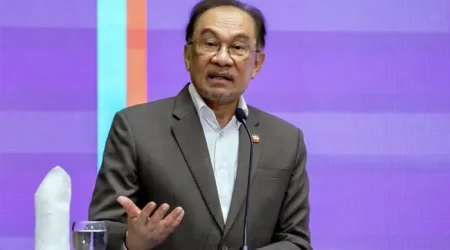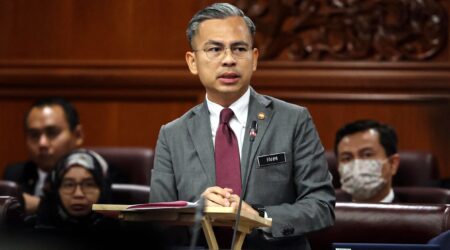Fiscal control to guide Budget 2025
PETALING JAYA: Malaysia may be able to meet its fiscal deficit target under a law that was passed last year, with the government expected to be strict with expenditure in the upcoming Budget 2025, say economists.
The government’s annual spending plan will be tabled by Prime Minister and Finance Minister Datuk Seri Anwar Ibrahim on Oct 18.
Bank Muamalat Malaysia Bhd chief economist Dr Mohd Afzanizam Abdul Rashid said Putrajaya should be able to gradually reduce the fiscal deficit from an estimated 4.3% of gross domestic product (GDP) this year to 4% in 2025.
He expects the allocation for Budget 2025 to be slightly lower or about the same as Budget 2024 due to the need for a lower deficit next year.
Budget 2024 was the largest in the nation’s history, with an allocation of RM393.8bil.
ALSO READ : (Poll) What do you want for Budget 2025?
“We shall see the government continue to record a fiscal deficit next year, albeit at a lower rate as percentage of GDP.
“This, by definition, is an expansionary Budget since the amount of expenditure will continue to exceed revenue collection, although the degree of the gap between expenditure and revenue will be reduced,” Mohd Afzanizam said.
“I suppose the government would be able to maintain a stable trajectory with respect to the total allocation for 2025. Some measures have been put in place to ensure that government finances will remain on track on their fiscal target.
“These include a higher services tax rate, the imposition of sales tax on low value goods, capital gains tax on foreign sourced income, higher excise duties on chewing tobacco and sugary drinks, electricity and water tariff revision as well as diesel subsidies rationalisation,” he added.
He said measures such as minimising revenue leakages, broadening the tax base, further subsidy rationalisation, streamlining and consolidation of agencies and the introduction of the Government Procurement Act would help keep the fiscal deficit on a lower trajectory.
According to the Federal Gazette, the Public Finance and Fiscal Responsibility Act (Act 850), which was passed in Parliament last year, came into force on Jan 1.
The Finance Minister had set the date for the Act to come into force, except for Sections 37 and 38, which stipulates the government to publish an annual fiscal risk and tax expenditure statement.
The Act, which aims to ensure the sustainability of public finances, set targets for government expenditure. Among them is capping the fiscal deficit at 3%, which will be achieved in three to five years, the Federal Government debt at 60%, and government guarantees at 25%.
Founder and director of Williams Business Consultancy Sdn Bhd and economist Geoffrey Williams, however, expects a higher allocation than last year due to commitments that were already announced, including higher civil service salaries and pensions, and allocations to Sabah and Sarawak.
“At the same time, there should be savings from cutting wastage, leakages and corruption, and extra revenue from economic growth. So, we will expect slightly higher spending in line with inflation and higher revenues to pay for it on the operating expenditures side,” he said.
Lower development expenditure is expected, he said, adding that some projects are financed by public-private partnerships.
“This will reduce the deficit and the percentage of deficit to GDP will also be lower because GDP growth is higher.
“All of this is in line with a responsible fiscal policy under the Act. We will also be interested to see if there are announcements about the Government Procurement Act,” said Williams.
Subsidy rationalisation and the savings from such exercises, a new minimum wage and the scope of the progressive wage policy to raise incomes and address the cost of living are announcements to look out for in Budget 2025.
BMI, a Fitch Solutions company, said in a note recently that it expects the budget deficit to narrow from 5% of GDP in 2023 to 4.3% in 2024, and further to 3.9% in 2025.
The research firm said the government has made significant strides in controlling spending so far this year.
BMI is also confident that the government would continue working towards its medium-term goal of reducing the budget deficit to 3.5% of GDP by 2025.













Leave a Reply